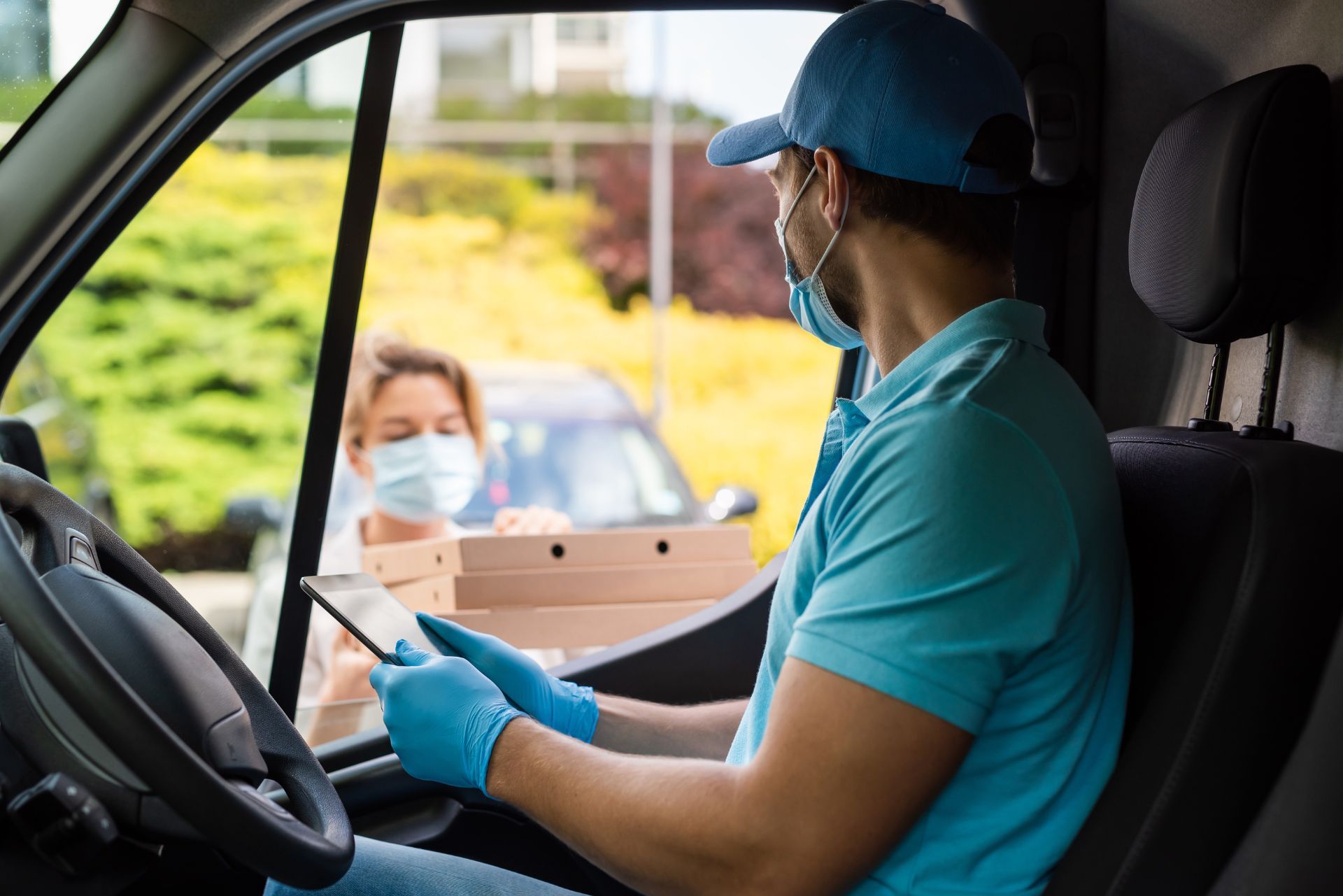In the Sunshine State, the gig economy is booming, and delivery drivers are an essential part of this growing landscape. Whether delivering food, groceries, or packages, these drivers play a crucial role in keeping communities connected. However, with this responsibility comes the need for adequate insurance coverage. Understanding Florida delivery driver insurance is vital for anyone considering or currently working in this field.
Understanding Delivery Driver Insurance
Delivery driver insurance is designed to protect drivers who use their personal vehicles for work-related purposes. This type of insurance differs from standard personal auto insurance, which may not cover accidents that occur while driving for business. In Florida, where the delivery industry is rapidly expanding, it’s essential for drivers to have the right coverage to avoid potential financial pitfalls.
What Is Delivery Driver Insurance?
Delivery driver insurance typically refers to a specialized policy that provides coverage for drivers who use their vehicles for commercial purposes. This insurance can cover various aspects, including liability, collision, and comprehensive coverage. It’s important to note that not all personal auto insurance policies will cover accidents that occur while making deliveries, leading to potential gaps in coverage. In many cases, delivery driver insurance can also include coverage for goods in transit, ensuring that any items being delivered are protected against theft or damage during the delivery process.
Why Is It Important?
Having appropriate insurance is crucial for delivery drivers for several reasons. First, it protects against liability claims in the event of an accident. If a driver causes damage to another vehicle or injures someone while on the job, they could be held financially responsible. Additionally, delivery driver insurance can cover vehicle repairs and medical expenses resulting from accidents, ensuring that drivers are not left to bear the financial burden alone. Furthermore, many delivery companies require their drivers to have specific insurance coverage as a condition of employment, making it not just a wise choice, but a necessary one for those looking to work in this growing field.
Moreover, delivery driver insurance can also provide peace of mind, allowing drivers to focus on their work without the constant worry of potential financial repercussions from unforeseen incidents. In a bustling state like Florida, where traffic can be unpredictable and delivery demands can be high, having the right insurance can mean the difference between a smooth operation and a financial disaster. As the gig economy continues to evolve, understanding the nuances of delivery driver insurance becomes increasingly important for those navigating this dynamic landscape.

Types of Coverage Available
When it comes to delivery driver insurance, several types of coverage options are available. Understanding these options can help drivers choose the right policy for their needs.
Liability Coverage
Liability coverage is a fundamental part of any delivery driver insurance policy. It protects drivers against claims made by third parties for bodily injury or property damage resulting from an accident. In Florida, the minimum liability limits are $10,000 for property damage and $10,000 for personal injury protection (PIP). However, many drivers opt for higher limits to ensure better protection. This is particularly crucial in a state like Florida, where the number of vehicles on the road can lead to a higher likelihood of accidents. Additionally, drivers should consider the potential costs associated with medical bills and vehicle repairs, which can far exceed these minimum limits, making higher coverage a wise investment.
Collision Coverage
Collision coverage is another critical component of delivery driver insurance. This coverage pays for damages to the driver’s vehicle resulting from a collision, regardless of who is at fault. For delivery drivers, who may face increased risks on the road, having collision coverage can be invaluable, especially when driving in busy urban areas or during peak delivery times. Moreover, many delivery drivers rely heavily on their vehicles for their livelihood, making it essential to have a policy that can quickly cover repair costs. In the event of an accident, this coverage can help minimize downtime and ensure that drivers can return to work as soon as possible, thus maintaining their income stream.
Comprehensive Coverage
Comprehensive coverage protects against non-collision-related incidents, such as theft, vandalism, or natural disasters. For delivery drivers, this coverage can provide peace of mind, knowing that their vehicle is protected against a wide range of potential risks. In Florida, where severe weather events can occur, having comprehensive coverage is particularly important. Additionally, with the rise of vehicle thefts in urban areas, comprehensive coverage can safeguard drivers from significant financial loss. This type of coverage not only includes protection against natural disasters like hurricanes but also covers incidents like falling objects or damage from animals, which can be surprisingly common. By investing in comprehensive coverage, delivery drivers can ensure that they are prepared for unexpected events that could otherwise disrupt their business and personal lives.
Factors Influencing Insurance Rates
Several factors can influence the cost of delivery driver insurance in Florida. Understanding these factors can help drivers find the most affordable and suitable coverage for their needs.
Driving History
A driver’s history plays a significant role in determining insurance rates. Those with a clean driving record, free from accidents or traffic violations, are likely to receive lower premiums. Conversely, drivers with a history of accidents or claims may face higher rates due to the perceived risk they present to insurers. Additionally, insurers may also consider the number of years a driver has been licensed and their experience level. Newer drivers, regardless of their clean record, may still face higher premiums simply due to a lack of experience on the road.
Type of Vehicle
The type of vehicle used for deliveries can also impact insurance costs. Generally, larger vehicles or those with higher market values may incur higher premiums. Additionally, vehicles that are more prone to theft or have a poor safety rating may also result in increased insurance rates. For instance, delivery drivers using vans or trucks designed for commercial use may find that their insurance costs differ significantly from those using smaller, more fuel-efficient cars. Furthermore, modifications made to a vehicle, such as enhanced audio systems or custom paint jobs, can also affect insurance rates, as these changes may increase the vehicle's value or risk profile.
Coverage Levels
The amount of coverage a driver chooses will directly affect their insurance costs. Higher coverage limits typically result in higher premiums, while lower limits may save money but expose drivers to greater financial risk in the event of an accident. It is essential for drivers to strike a balance between adequate coverage and affordability. Moreover, many insurers offer various types of coverage options, including liability, collision, and comprehensive coverage, each with its own implications for cost. Drivers should carefully evaluate their specific needs and consider factors such as the frequency of their deliveries and the typical distances traveled, as these can influence the level of coverage that is most appropriate for their situation. Additionally, some insurance providers may offer discounts for bundling policies or for maintaining a good driving record over time, which can further help drivers manage their insurance costs effectively.
Legal Requirements for Delivery Drivers in Florida
In Florida, delivery drivers must adhere to specific legal requirements regarding insurance coverage. Understanding these regulations is crucial for compliance and protection.
Minimum Insurance Requirements
Florida law mandates that all drivers carry a minimum level of insurance, including personal injury protection (PIP) and property damage liability (PDL). The minimum requirements are $10,000 for each. However, these minimums may not be sufficient for delivery drivers, who often face higher risks on the road. Therefore, many drivers opt for higher coverage limits to ensure adequate protection. Additionally, it is important to note that the nature of delivery work often involves navigating busy urban environments, which can increase the likelihood of accidents. As such, drivers should consider factors such as their delivery frequency and the types of goods they transport when assessing their insurance needs.
Commercial vs. Personal Insurance
It is essential for delivery drivers to understand the difference between commercial and personal insurance. Personal auto insurance policies may not cover accidents that occur while making deliveries, exposing drivers to significant financial risks. Therefore, obtaining a commercial policy or a rideshare endorsement is often necessary for those who deliver goods or services. Furthermore, commercial insurance typically provides broader coverage options, including liability for cargo damage and higher limits on bodily injury, which can be particularly beneficial for drivers working with high-value items. This distinction becomes increasingly relevant as the gig economy expands, with more individuals relying on delivery services for their livelihoods.
Licensing and Registration
In addition to insurance requirements, delivery drivers in Florida must ensure that their vehicles are properly registered and that they possess a valid driver's license. The state requires all drivers to maintain an up-to-date vehicle registration, which includes providing proof of ownership and paying the necessary fees. Depending on the delivery service or company, drivers may also need to undergo background checks and vehicle inspections to ensure safety and compliance with industry standards. This regulatory framework not only protects consumers but also helps maintain a level of professionalism within the delivery sector, fostering trust between drivers and their clients.

Choosing the Right Insurance Provider
Selecting the right insurance provider is a crucial step for delivery drivers in Florida. With numerous options available, it’s important to consider various factors when making a decision.
Reputation and Reviews
When choosing an insurance provider, it’s essential to research their reputation and customer reviews. Look for companies with positive feedback regarding claims handling, customer service, and overall satisfaction. Online reviews and ratings can provide valuable insights into the experiences of other delivery drivers. Additionally, consider seeking recommendations from fellow drivers or local delivery services; personal experiences can often highlight strengths or weaknesses that may not be apparent in online reviews. Engaging in community forums can also shed light on the best providers tailored specifically for the unique challenges faced by delivery drivers in Florida.
Coverage Options
Different insurance providers offer varying coverage options. It’s important to compare policies to ensure that the selected provider meets the specific needs of delivery drivers. Look for providers that offer customizable coverage, allowing drivers to tailor their policies to their unique circumstances. For instance, some providers may offer specialized coverage for delivery-related incidents, such as cargo damage or liability for accidents occurring during deliveries. Understanding the nuances of each policy can empower drivers to make informed choices that protect both their vehicle and their livelihood.
Cost and Discounts
While cost should not be the sole determining factor, it is essential to consider the affordability of insurance premiums. Many providers offer discounts for safe driving, bundling policies, or completing defensive driving courses. Exploring these options can help drivers save money while still obtaining adequate coverage. Furthermore, some insurers may provide incentives for low mileage or for using telematics devices that monitor driving behavior. This not only encourages safer driving habits but can also lead to significant savings on premiums over time. It’s worthwhile for drivers to inquire about all available discounts and to regularly review their policies to ensure they are getting the best rates possible.
Common Myths About Delivery Driver Insurance
There are several misconceptions surrounding delivery driver insurance that can lead to confusion. Understanding the truth behind these myths can help drivers make informed decisions.
Myth: Personal Insurance Covers Delivery Driving
One of the most common myths is that personal auto insurance policies cover delivery driving. In reality, many personal policies contain exclusions for commercial use, meaning that drivers could be left without coverage in the event of an accident while making deliveries. It’s crucial for drivers to verify their policy details and obtain the necessary coverage. Additionally, some insurance companies may offer riders or endorsements that can extend personal coverage to include delivery driving, but these options often come with additional costs and specific requirements that must be met.
Myth: All Delivery Driver Insurance Is the Same
Another misconception is that all delivery driver insurance policies are identical. In reality, coverage options, limits, and costs can vary significantly between providers. Drivers should carefully review their options and choose a policy that best fits their needs and driving habits. Factors such as the type of delivery service—be it food, packages, or groceries—can influence the type of coverage required. Furthermore, some insurers offer specialized policies that cater specifically to gig economy drivers, providing tailored benefits such as coverage for lost income during accidents or injuries sustained while on the job. Understanding these nuances can empower drivers to select the most appropriate insurance for their unique circumstances.
Myth: Delivery Driver Insurance Is Too Expensive
Many drivers believe that obtaining delivery driver insurance is prohibitively expensive, which can deter them from seeking the right coverage. However, the cost of insurance can vary widely based on several factors, including driving history, location, and the specific type of delivery work being performed. In some cases, drivers may find that the additional cost of a commercial policy is offset by the peace of mind and financial protection it provides. Additionally, many insurance providers offer discounts for safe driving records or bundling policies, which can help reduce overall expenses. By shopping around and comparing quotes, drivers can often find a policy that fits their budget while still offering adequate protection.
Tips for Delivery Drivers to Save on Insurance
Finding affordable insurance is a priority for many delivery drivers. Here are some tips to help save on insurance costs without sacrificing coverage.
Maintain a Clean Driving Record
One of the most effective ways to keep insurance premiums low is to maintain a clean driving record. Avoiding accidents and traffic violations can lead to lower rates over time. Additionally, many insurers offer safe driver discounts, rewarding those with a history of responsible driving.
Shop Around for Quotes
Shopping around for insurance quotes is essential for finding the best deal. Different providers may offer varying rates for similar coverage, so it’s wise to compare multiple quotes before making a decision. Online comparison tools can simplify this process, allowing drivers to evaluate their options quickly.
Consider Bundling Policies
Many insurance providers offer discounts for bundling multiple policies, such as auto and home insurance. For delivery drivers, bundling can lead to significant savings on premiums. It’s worth inquiring about bundling options when obtaining quotes from different providers.
Conclusion
Florida delivery driver insurance is a critical consideration for anyone in the gig economy. With the right coverage, drivers can protect themselves from financial risks while navigating the challenges of delivery work. By understanding the types of coverage available, legal requirements, and tips for saving on insurance, drivers can make informed decisions that best suit their needs.
Ultimately, investing in appropriate insurance is not just a legal requirement but also a vital step in ensuring peace of mind while on the road. As the delivery industry continues to grow, having the right protection in place is essential for success and security.

Contact Us


